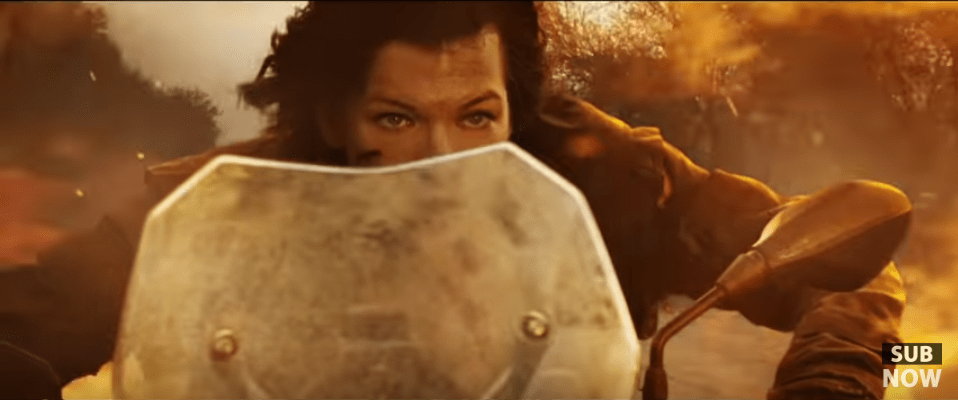Paul W.S. Anderson Talks Female Heroes, Video Game Movies, and the End of an Era With Resident Evil: The Final Chapter


Resident Evil: The Final Chapter premiered this weekend, and it looks like the sixth film in the series will put the franchise at over $1 billion in box office earnings. Like the other Resident Evil films, The Final Chapter didn’t exactly score glowing reviews, but that hasn’t dulled star Milla Jovovich or director and writer Paul W.S. Anderson’s enthusiasm in the past, and I doubt it will now.
Resident Evil celebrates its staying power even as more recent video game adaptations–Assassin’s Creed, World of Warcraft, Prince of Persia: Sands of Time–have stumbled. The struggle to adapt video games to film has gotten so pervasive that there are even joke headlines about “the only good video game movie.” Perhaps most critics wouldn’t call the Resident Evil franchise “good,” but its commercial success shows that it’s found an audience who deeply enjoys it.
When Anderson sat down with The Hollywood Reporter to talk about Resident Evil, the difficulty of adapting video games to film quickly came up. “I wasn’t looking for a video game to adapt,” said Anderson. “I’m a gamer, and I became obsessed with Resident Evil. I played the first two games back-to-back…I disappeared from view. Stayed in my apartment. Didn’t return anyone’s calls. After ten days I emerged with ten days’ worth of stubble and kind of bloodshot eyes going, ‘I love this! We have to turn it into a movie.'”
Anderson also spoke about how the movie business has evolved. “We took some bold choices when we made the first one that were kind of seen almost as negatives,” he said. One of those bold choices was making a movie about zombies in the pre-Walking Dead landscape.
Anderson also spoke about Milla Jovovich’s character, Alice. When the first Resident Evil film came out in 2002, having a female protagonist was a risk, but one that yielded plenty of reward. “Having a really strong female lead, which at the time in Hollywood was not fashionable at all [was a positive]. No studio wanted to do that. We very much benefited from the fact that we put the first movie together as an independent film outside of Hollywood.”
He acknowledged that Alice represented a change from the video games themselves, and the gamble of going against game canon. “Milla’s character Alice doesn’t exist in the video games. A lot of fans were very skeptical of that to begin with,” he said. “My reasoning for that was, when you make a videogame movie, you have to please two audiences. There’s the hardcore fans, who know everything about the video game and about the world and then there’s the more general audience, who you also need to come and see the movie, who don’t know anything about the world.”
“Milla really became the avatar for that audience. Basically we were saying to the audience, “It’s OK if you don’t know anything about the world of Resident Evil,’ because the central character is a completely new character. The fact that Milla woke up without any memory, it kind of made it okay. If you don’t know anything about the world of Resident Evil, that’s okay because your leading lady — she’s right there with you.”
The discussion eventually circled back to video game adaptations and how to approach them. “I think they are totally valid a pieces of intellectual property to adapt,” said Anderson. “They are slightly more difficult though. You see that in the history of adaptations. Video game adaptations are more likely to fail than they are to succeed.”
“And it’s not because there is anything inherently wrong with the idea of adapting video games. I just think the adaptation process — it’s a fine line that you walk, pleasing those two audiences, and I think it’s a little easier if you are adapting a comic book rather than something that’s already a visual medium with moving image. And I think it’s quite often it’s underestimated how difficult it can be to do an adaptation that works.”
Anderson has helped to write all six Resident Evil films, and directed four of them. Alexander Witt directed Resident Evil: Apocalypse, and Russell Mulcahy directed Resident Evil: Extinction. Milla Jovovich has starred as Alice in all six.
(Via The Hollywood Reporter; image via video screengrab)
Want more stories like this? Become a subscriber and support the site!
—The Mary Sue has a strict comment policy that forbids, but is not limited to, personal insults toward anyone, hate speech, and trolling.—
Follow The Mary Sue on Twitter, Facebook, Tumblr, Pinterest, & Google+.
Have a tip we should know? [email protected]